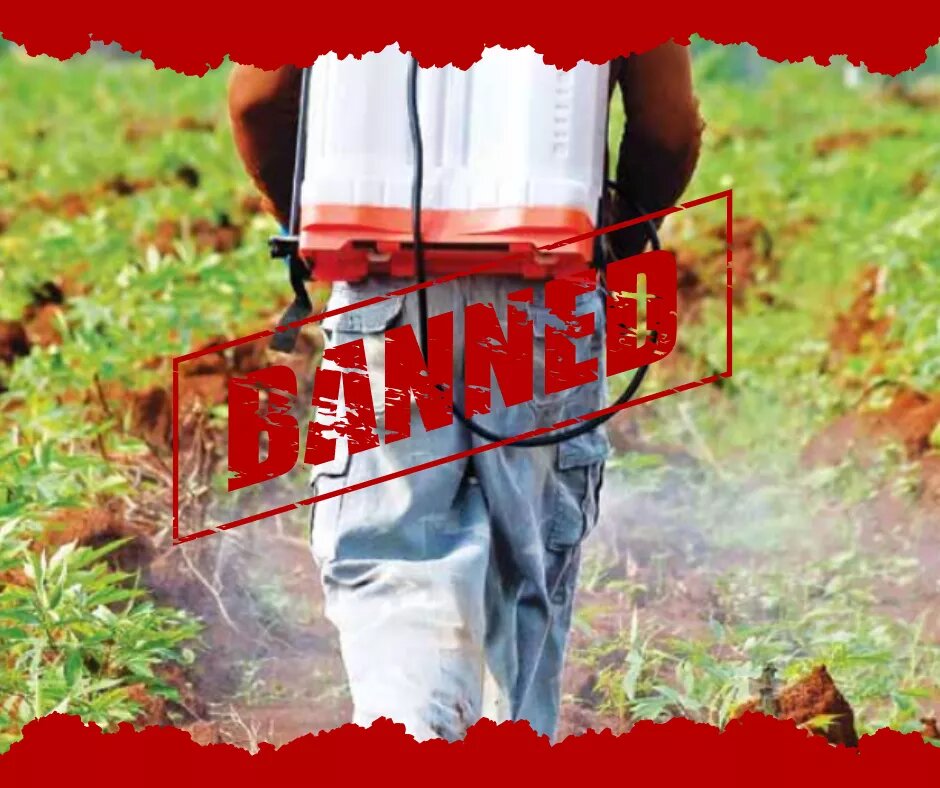Many pesticides are banned in the European Union. It is illegal to use them in EU Member States, yet it is allowed to produce and export them to third countries – where they pose great risks to people and their environment.

According to market forecasts, the number of pesticide exports to countries in the Southern Hemisphere will continue to grow. The five largest pesticide companies –including Bayer, BASF, and Syngenta – already generate more than one-third of their pesticide sales from active ingredients classified by the Pesticide Action Network (PAN) as highly hazardous. According to the World Health Organization (WHO) and the Food and Agriculture Organization of the United Nations (FAO), Highly Hazardous Pesticides (HHPs) present particularly high levels of acute or chronic hazards to humans and the environment. For this reason, many of these pesticides are no longer authorized in the European Union.
However, European companies are still allowed to sell these pesticides – namely to countries outside the EU. This practice creates double standards. In 2018 and 2019, EU countries and the United Kingdom approved the export of a total of 140,908 tonnes of pesticides that are banned from being applied in European fields because of unacceptable health and environmental risks. Furthermore, European corporations like the German companies Bayer and BASF sell pesticide products locally in third countries with active ingredients banned in the EU. In South Africa and Brazil, they sold products containing at least 28 such active ingredients, according to a 2020 study. Some of the hazardous pesticides exported from Europe find their way back as residues in imported food. Residues of 74 pesticides banned in the EU were found in food tested on the European market in 2018 – 22 of which were exported from Europe that same year.
Brazil today is one of the largest consumers of pesticides in the world and imports most of the pesticide active ingredients from abroad, including from EU countries. In 2019 these included at least 14 highly hazardous active ingredients no longer approved in the EU. Among them were BASF’s fipronil, which is highly toxic to bees, nerve damaging chlorpyrifos from Portugal’s Ascenza Agro SA, as well as Germany’s Alzchem AG’s highly toxic cyanamide and Bayer’s propineb, which damage sexual function and fertility.
A total of 230 active ingredients are registered in Kenya, including 51 that are no longer permitted in the EU, such as atrazine (Syngenta), trichlorfon (Bayer) and fipronil (BASF). 70 percent of the rural economy works in the agricultural sector. NGOs warn that farmers are increasingly using dangerous substances to grow food. Despite being banned in the EU, Kenyan imports in 2018 and 2019 included iprodiones and acetochlorines from Belgium and 1,3-dichloropropene from Spain. South Africa imported active substances such as imidacloprid, which is hazardous to bees, from Germany and France in 2021 and 2022.
The pesticide companies claim their products are safe and do not endanger humans, insects, or water bodies when handled properly. Proper handling often includes wearing personal protective equipment and adhering to specific application times, spraying distances, and guidelines for co-application with other substances. In reality, the prescribed application often cannot be guaranteed in the Global South, because applicants are inadequately trained or not trained at all, and insufficiently informed about health hazards and distance requirements when applying pesticides. Personal protective equipment is often difficult to obtain, too expensive, or it is simply not reasonable to wear due to high temperatures. Different studies also show that many users aren’t able to read the instructions, either because they have a low level of school education or because the instructions are not written in the common languages of the country. International organizations such as the FAO and WHO have been pointing out this problem for years.
Human rights experts criticize the practice by EU Member States of exporting EU banned pesticides to the Global South, because it externalizes the health and environmental impacts of these hazardous substances on the most vulnerable. Civil society organizations therefore demand a legal ban of such practices. Pesticides not approved in the EU due to their unacceptable health or environmental effects should no longer be allowed to be sold to countries outside the EU. In 2020 the European Commission’s draft chemicals strategy included for the first time a commitment to prevent the export of hazardous chemicals banned in the EU. A first legal draft is to be expected in 2023.
Some European states have already taken national action. In France, a law forbidding the manufacture, storage, and export of EU banned pesticides came into force in January 2022. These substances can no longer be used to maintain green spaces, pathways or forests. Switzerland has banned the export of five particularly toxic pesticides since 2021, with other active ingredients to follow. In Germany, an announcement of putting a legal stop to such exports in the future was confirmed and concretised in September 2022. Importing countries have also taken steps against double standards in pesticide trade: Tunisia, Mexico and the Palestinian National Authority have imposed a ban on imports of pesticides that are forbidden in the exporting or producing country itself.
This article was published in the Pesticides Atlas Kenya Edition.